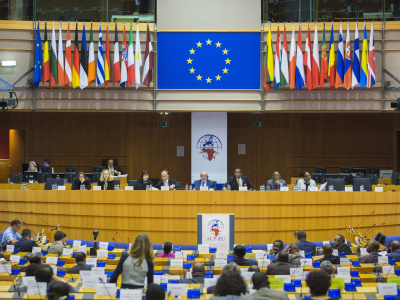
Charting the course to 2020: Fundamental choices for the negotiation of a future ACP-EU partnership
Negotiations for the future of ACP-EU relations are due to start later this year. Between now and 2020, several internal and external negotiations coincide that will define the future shape of EU foreign relations. How to redesign a future ACP-EU agreement with regional partnerships in this context? What are the fundamental political choices to be made in the upcoming negotiations?
Summary
This publication looks at the core features of ACP-EU relations in this wider context of EU foreign relations and outlines the fundamental political choices that will need to be made in the upcoming negotiations. In the process, the EU, Africa and the ACP can opt for the path of least resistance, seeking to maintain and preserve core elements of the ACP-EU partnership in a future hybrid agreement; one that is primarily based on a traditional donor-recipient relationship with individual states marginalises other actors and, de facto, subordinates continental/regional bodies. Or they can choose to reshape the ACP-EU partnership, starting from the stated objective of mutually beneficial, interest-driven cooperation, based on multi-actor partnerships and regional dynamics. This may be more difficult to achieve in the short run. However, it is the way forward in international cooperation, particularly for EU-Africa relations.
To illustrate the various fundamental choices involved in the renegotiation of the ACP-EU partnership in this wider strategic context, seven aspects of ACP-EU relations are detailed below. They start from the initial EU and ACP proposals to renew and extend the partnership while also ensuring better integration of continental and regional dynamics. On that basis, we identify critical choices both for the content of the partnership and the process of the negotiations.





